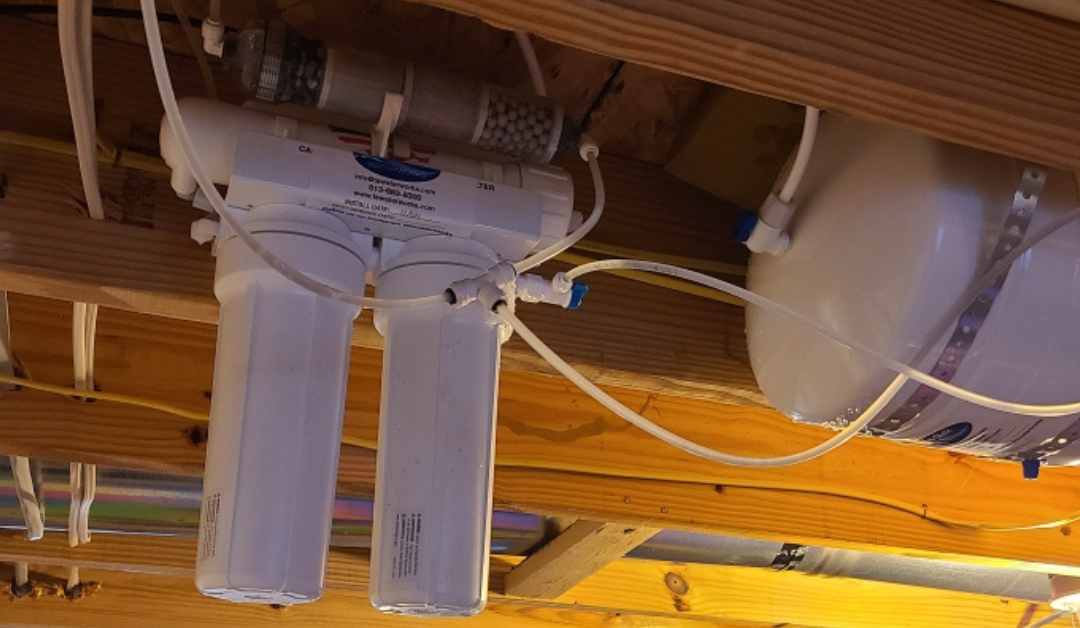In an era where health and wellness are at the forefront of everyone’s mind, ensuring the purity of the water in our homes has become a priority. With contaminants ranging from chlorine and fluorides to more dangerous substances like lead and pesticide residues finding their way into our water supply, the investment in a residential water purification system is not just a luxury but a necessity. Below, we explore the top five ways in which integrating a residential water purification system can significantly elevate the well-being of your family.
Elimination of Toxic Contaminants
The primary function of any water purification system is to remove potentially hazardous substances from your water. These substances can range from heavy metals such as lead and mercury to organic compounds like pesticides and herbicides. Long-term exposure to these contaminants can lead to a host of health issues, including neurological problems, reproductive issues, and an increased risk of cancer. By installing a high-quality water purification system, you can drastically reduce or eliminate these dangers, ensuring that the water your family drinks, cooks with, and bathes in is as safe as possible.
Enhancement of Water Quality and Taste
It’s not just about safety; the aesthetics of water—its taste, smell, and clarity—are also improved by purification systems. Chlorine, commonly used to treat public water supplies, can give water an unpleasant taste and odor. Similarly, high levels of minerals can cause water to be hard, affecting its feel and causing scaling on appliances. A comprehensive water purification system can address these issues, providing you with water that is not only safe but also pleasant to consume and use, encouraging hydration and overall health.
Prevention of Skin Conditions
Contaminated or hard water can exacerbate or even cause skin conditions such as eczema, psoriasis, and acne. The chemicals and minerals in untreated water can strip the skin of its natural oils, leading to dryness, irritation, and sensitivity. By purifying your water, you can minimize your family’s exposure to these irritants, promoting healthier, more resilient skin and alleviating the discomfort associated with these conditions.
Cost Efficiency and Environmental Impact
Investing in a water purification system can also be cost-efficient in the long run. By having access to clean, safe water at home, the need to purchase bottled water is eliminated, saving money and reducing plastic waste. Furthermore, modern water purifiers are designed to be energy efficient, using less electricity and wasting less water than older models. This not only lowers your utility bills but also contributes to your family’s efforts to live a more sustainable and environmentally friendly lifestyle.
Protection Against Microbial Threats
Beyond chemical contaminants, untreated water can also be a breeding ground for bacteria, viruses, and parasites. These microbial threats can cause a variety of illnesses, from gastrointestinal issues to more serious conditions. Water purification systems equipped with UV filters or reverse osmosis technology are highly effective at eliminating these biological hazards, offering an extra layer of protection to your family’s health.
FAQs Residential Water Purification Systems
How Often Should I Replace the Filters in My Residential Water Purification System?
Regular filter replacement is essential for maintaining optimal performance and water quality. Depending on the type of system and usage levels, filters may need to be replaced every six months to one year.
Are Residential Water Purification Systems Expensive to Install and Maintain?
While initial installation costs vary depending on the system’s complexity and features, many homeowners find that the long-term benefits outweigh the upfront investment. Additionally, ongoing maintenance costs are typically manageable, consisting mainly of periodic filter replacements.
Can a Residential Water Purification System Remove Fluoride from Tap Water?
Yes, certain filtration technologies, such as reverse osmosis, can effectively remove fluoride from tap water. However, it’s essential to choose a system specifically designed for this purpose and follow manufacturer recommendations for optimal performance.
Do Residential Water Purification Systems Waste Water During the Filtration Process?
Some filtration methods, such as reverse osmosis, may produce wastewater as a byproduct of the purification process. However, modern systems are designed to minimize water waste through efficient recycling and conservation measures.
Are There Any Health Benefits to Using Filtered Water for Cooking and Food Preparation?
Absolutely! Filtered water ensures that the ingredients you use in cooking and food preparation are free from contaminants, enhancing the overall quality and safety of your meals. Additionally, eliminating impurities can improve the taste and appearance of cooked dishes.
Can Residential Water Purification Systems Soften Hard Water?
While some filtration systems can reduce the hardness of water by removing minerals like calcium and magnesium, they may not provide the same level of water softening as dedicated water softeners. However, integrated systems that combine filtration and softening technologies are available to address both concerns simultaneously.
The introduction of a residential water purification system into your home can have a profound impact on the well-being of your family. From safeguarding against toxic contaminants and enhancing the overall quality of your water to protecting against skin conditions and microbial threats, the benefits are substantial. In choosing to invest in a water purification system, you are not just improving the quality of your water; you are taking a significant step towards a healthier, happier home. To install a water purification system in your home, contact Tri-State Waterworks today!

